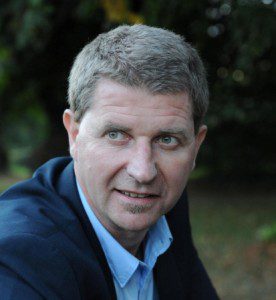A global moratorium on depleting and destroying ecosystems
Article issued by Ignace Schops, EUROPARC President
“A half of a degree less, makes a world of difference”, said UN Secretary-General António Guterres. The IPCC special report “Global Warming of 1.5°C” was very clear. Unless we become climate neutral by 2050, we will face severe problems. Limiting global warming to 1.5°C will require “unprecedented” transitions.
The UN Secretary-General stressed the need to plant billions of trees; drastically reduce fossil fuel use and phase out coal by 2050; ramp up the installation of wind and solar power; invest in climate-friendly sustainable agriculture and consider new technologies such as CCS. In this regard, he urged countries to raise their ambition, strengthen their nationally determined contributions (NDCs) and urgently accelerate implementation of the Paris Agreement.
As far as we know growing new forests, investing in new nature and marine reserves and safeguarding natural systems are most reliable and cheapest way to tackle global warming.
Unfortunately, our life balancing ecosystems are threatened day after day. Habitats and species disappear as snow in the sun… and so the carbon buffer capacity of ecosystems. The autonomous evolution is negative. I repeat: negative!
Since the rise of human civilization 83% of the wild mammals, 80% of the marine mammals, 50% of the plants and 15% of the fish have been lost. We are playing with (our) life on earth! In his book “half-Earth”, the great Edward O. Wilson rightly states that
if we want to sustain on a healthy biodiverse planet, we need to reserve at least half of the earth for the protection of nature.
We are losing our comfort zone! Isn’t it time to take a new big simple idea forward that jointly helps to tackle the problems of climate change and biodiversity loss? How? Well, maybe it is time for an extra incentive and to invest in what we have and cannot afford to lose.
In other words: a global moratorium on depleting and destroying ecosystems.
A stand-still-principle as the starting situation. Combined with a system to reimburse regions who are willing to create new buffer zones, (re)plant forests or enlarge existing ecosystems. The mechanism to activate this idea could be the PES, Payments for Ecosystem Services. The basic idea behind PES is to pay those who provide ecosystem services should be paid for doing so.
One of the collective goals of the Paris Agreement is to mobilize US$ 100 billion a year in climate finance for de developing countries by 2020. Let’s secure this budget for this purpose. The developing countries need all the support we can get. But is it such a big problem to top this budget with an extra US$ 50 billion? The advantage is it could be a big win-win-situation: for the healthiness and the future of our planet. To tackle climate change and to safeguard our natural heritage!
The more we invest in the livelihoods of our living engine, the longer our precious planet will give us and all its creatures to the pleasure of living on it!
Think globally, act locally and change personally!

Ignace Schops © Don MacMonagle
Ignace Schops
President EUROPARC Federation